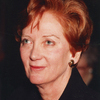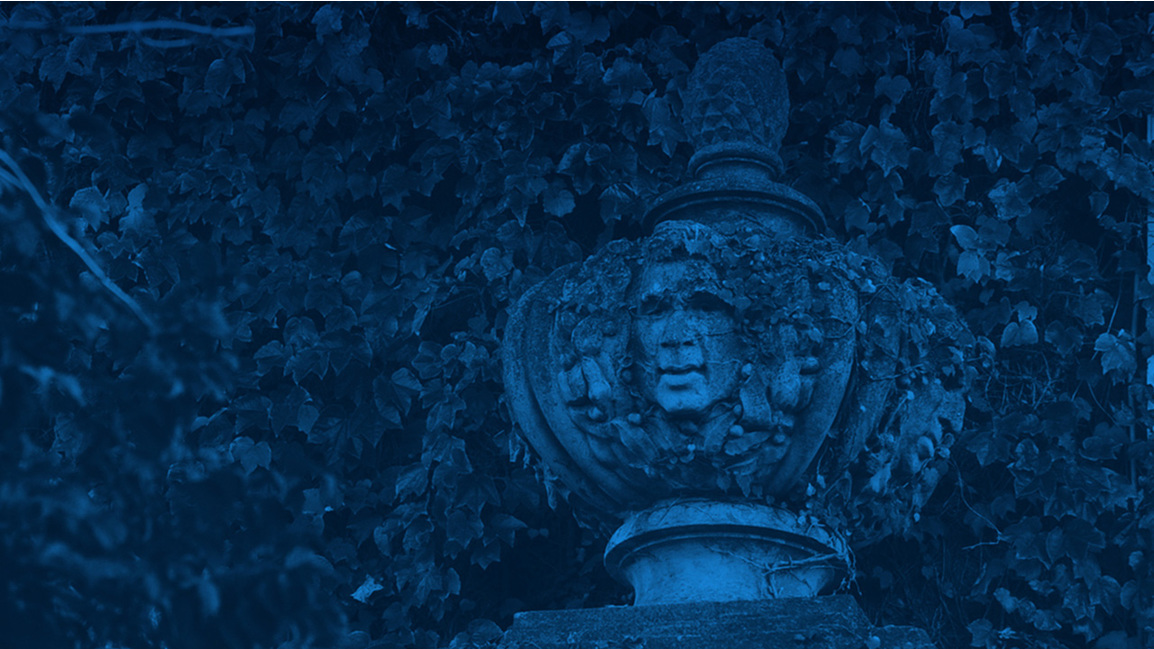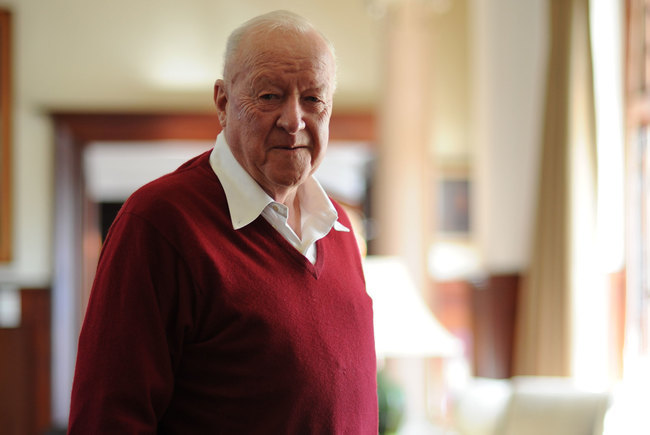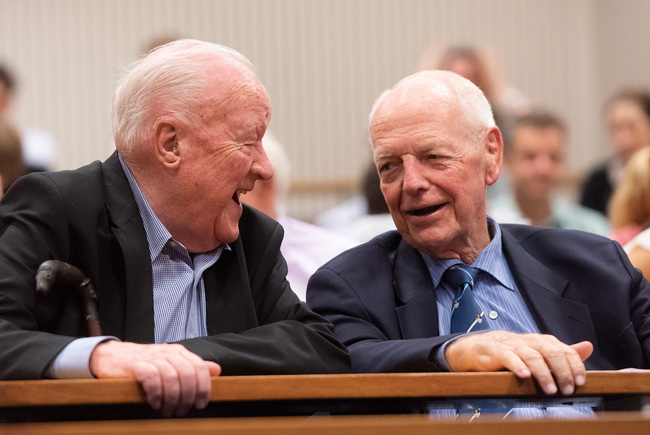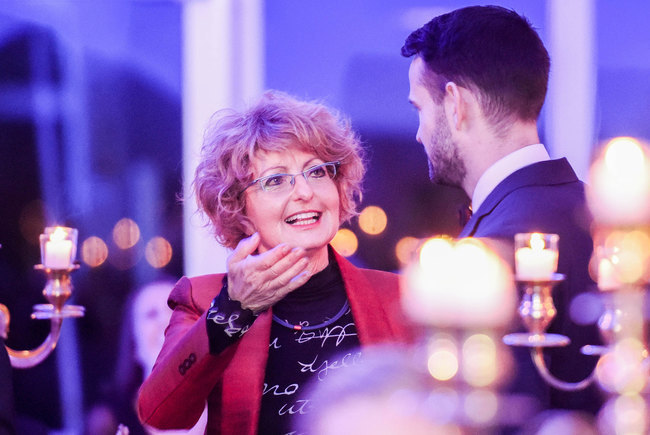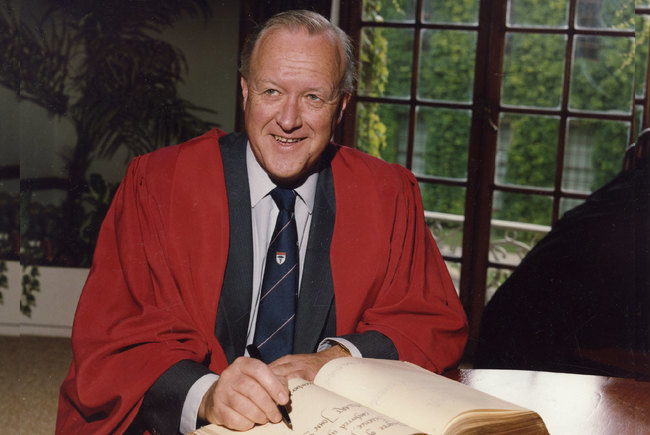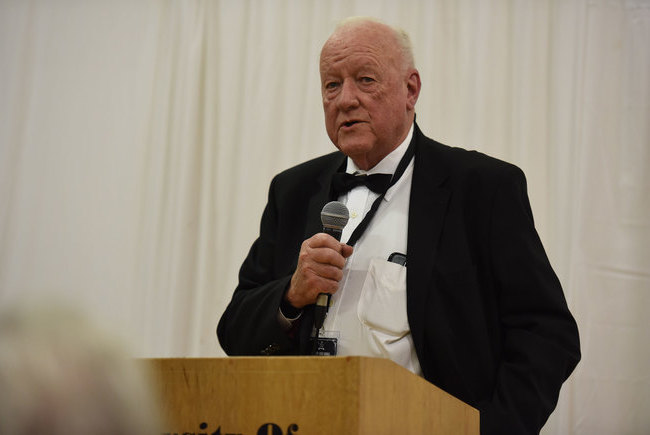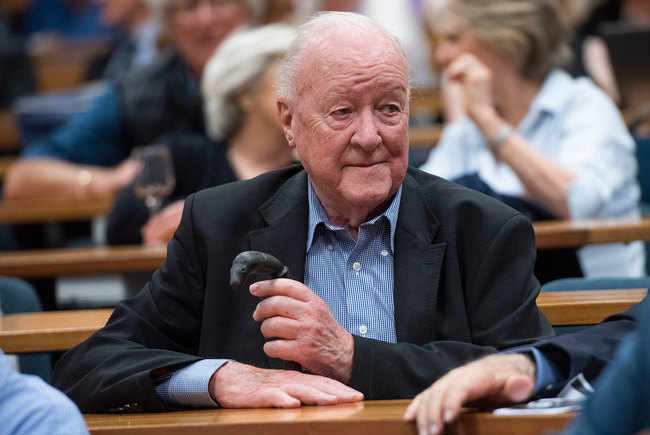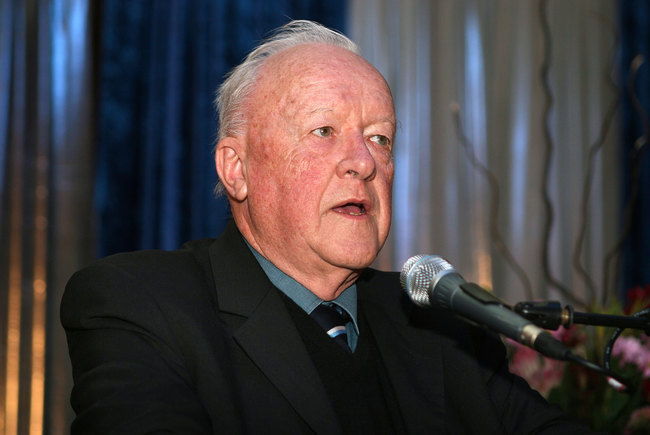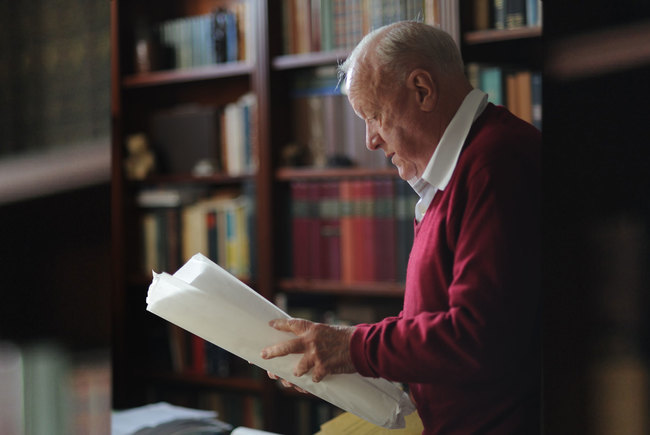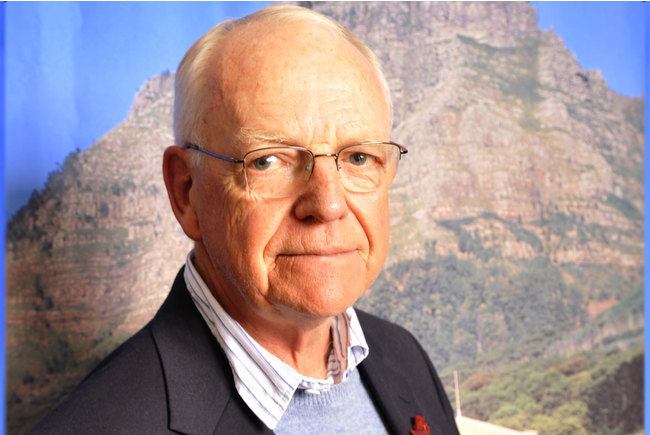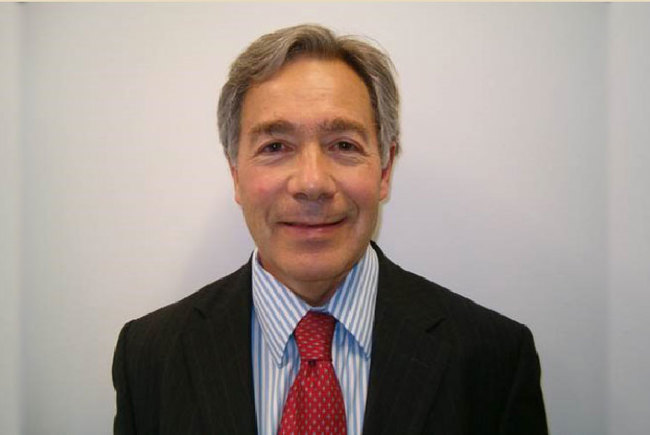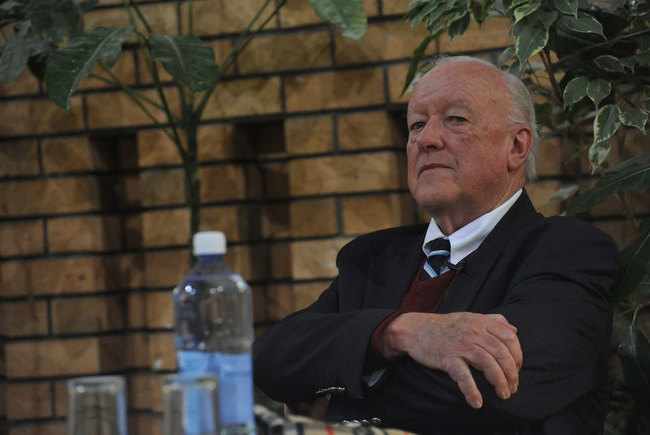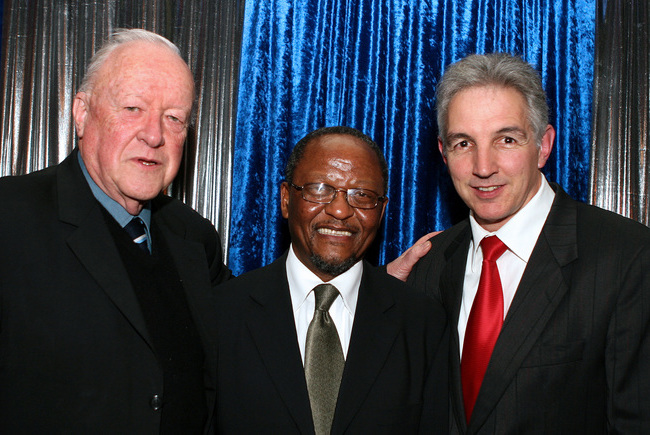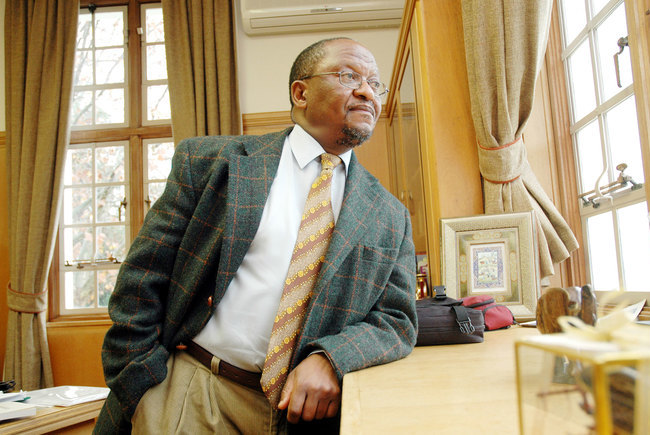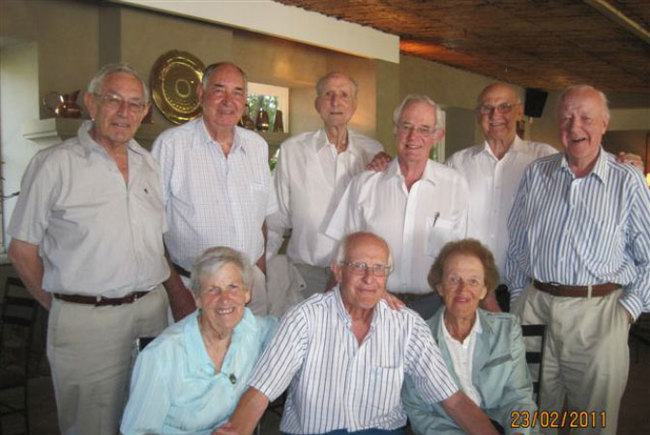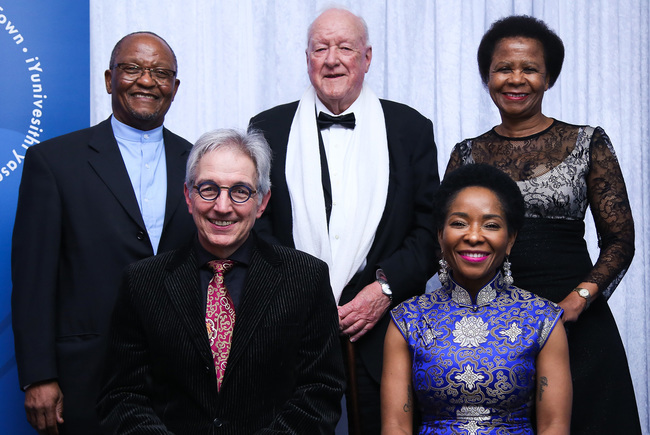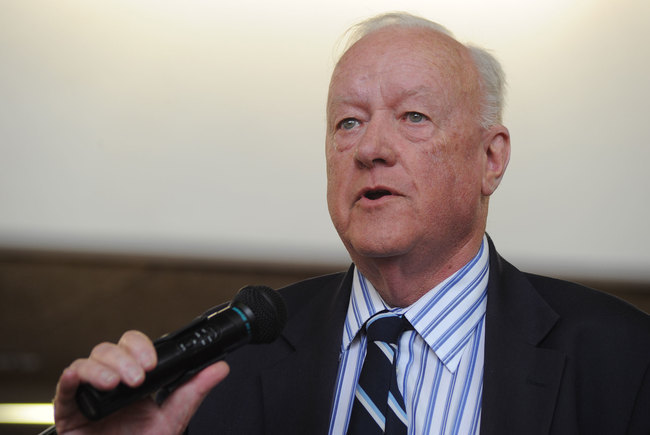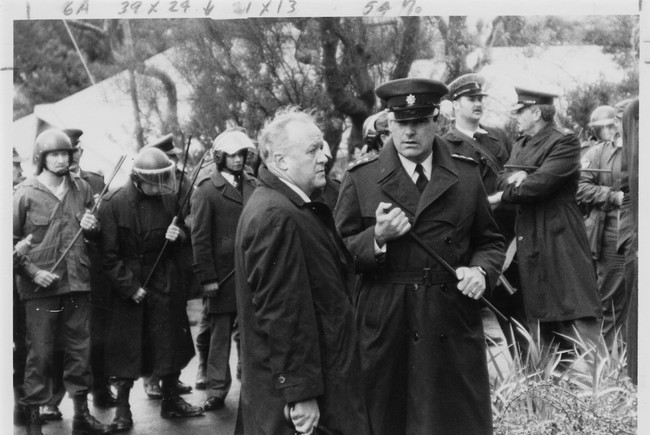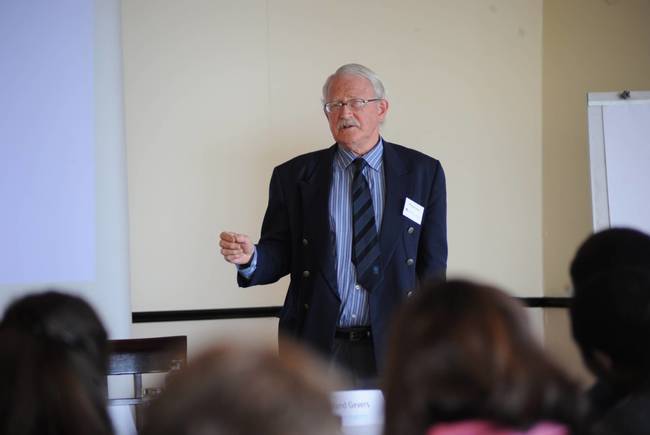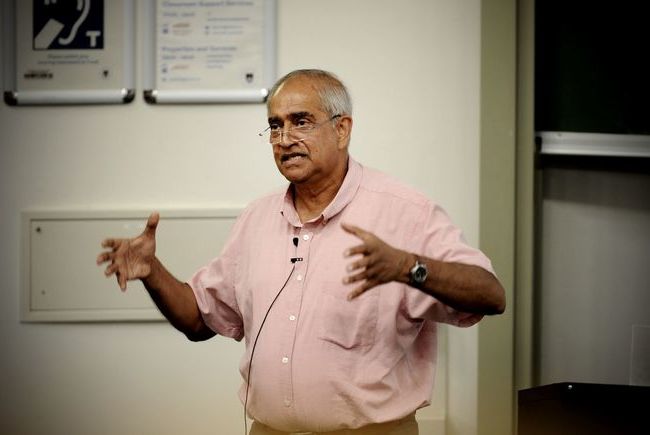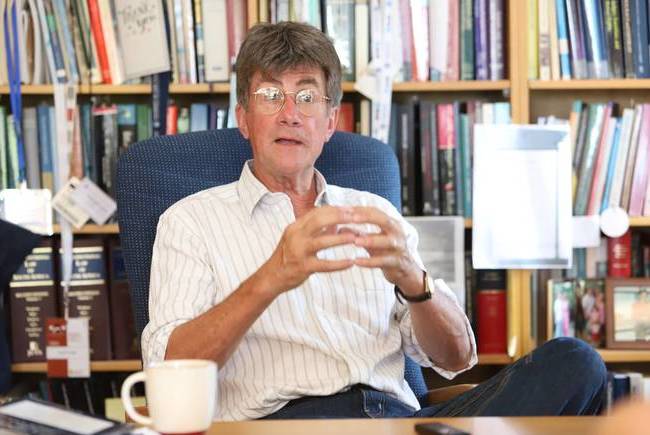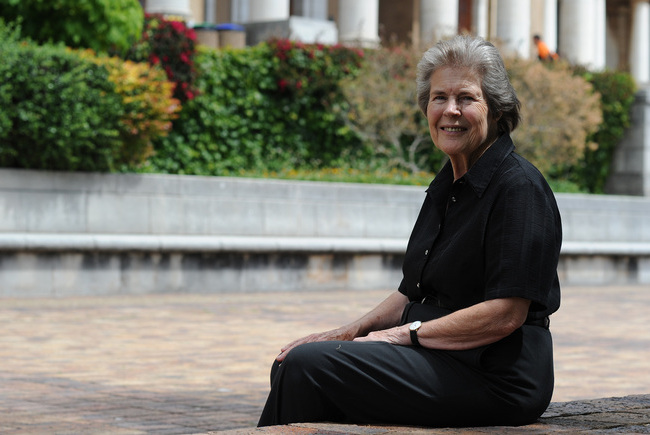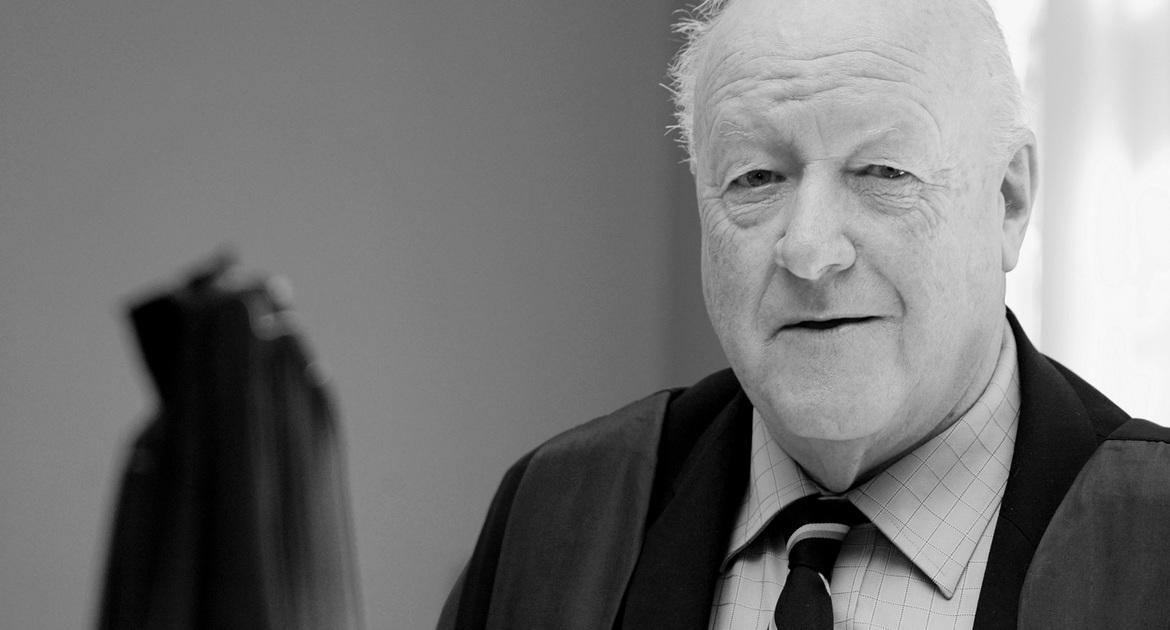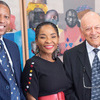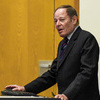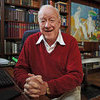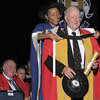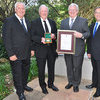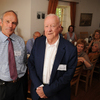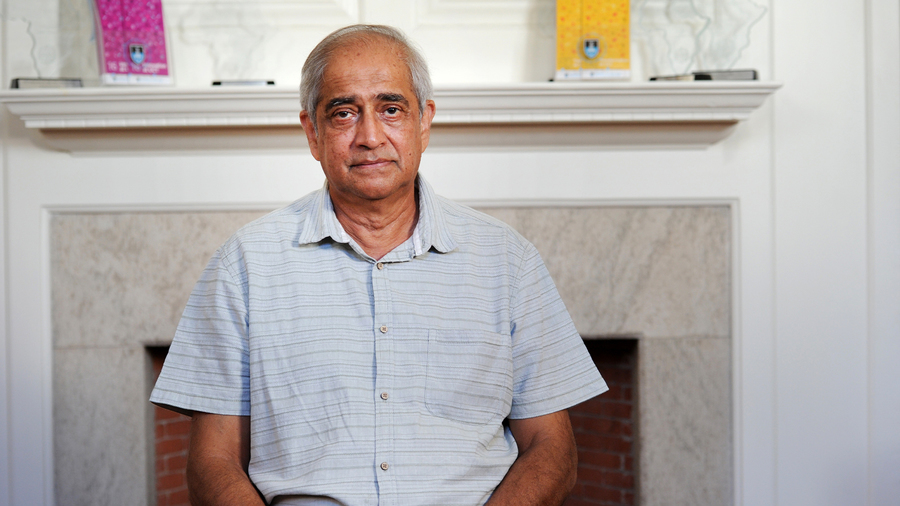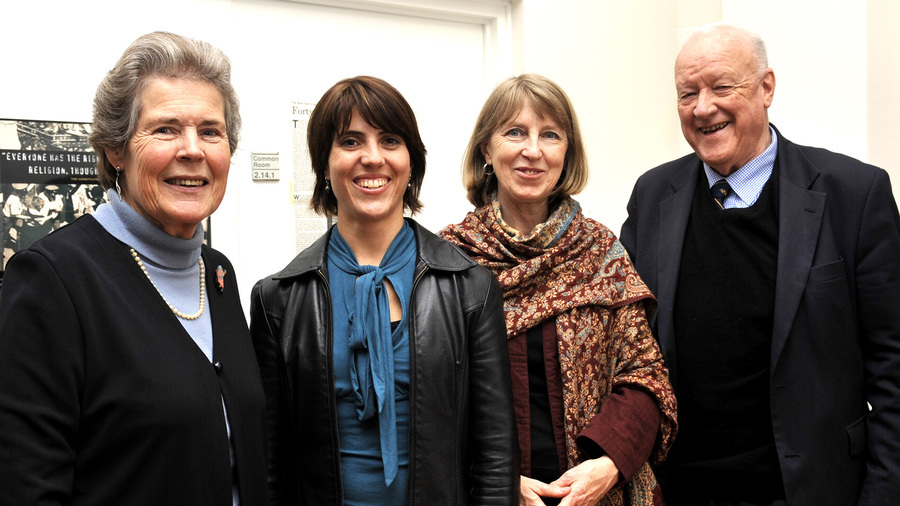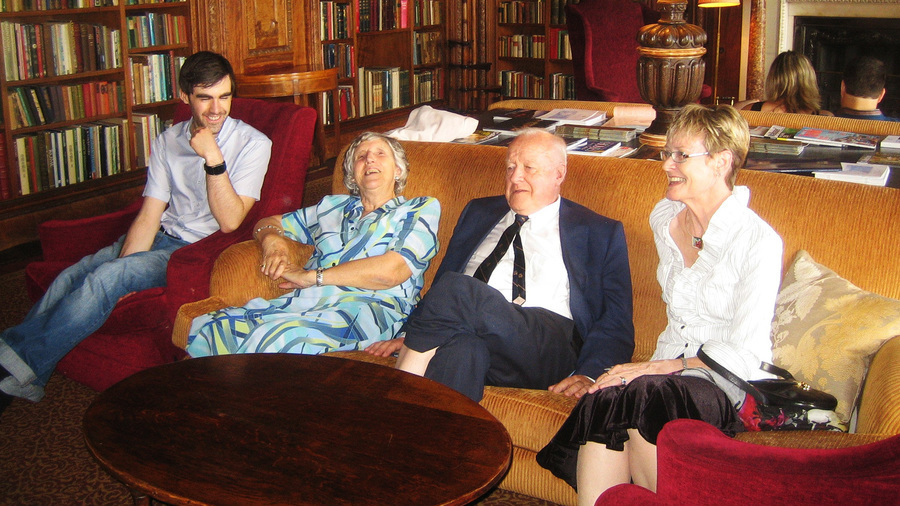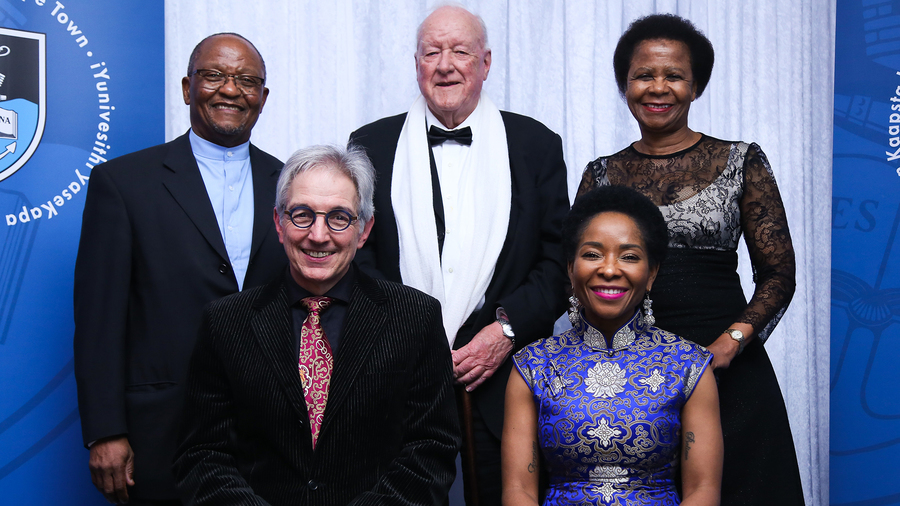Managing crises in a time of divisions
23 February 2021 | Story Helen Swingler. Photo Michael Hammond. Read time 4 min.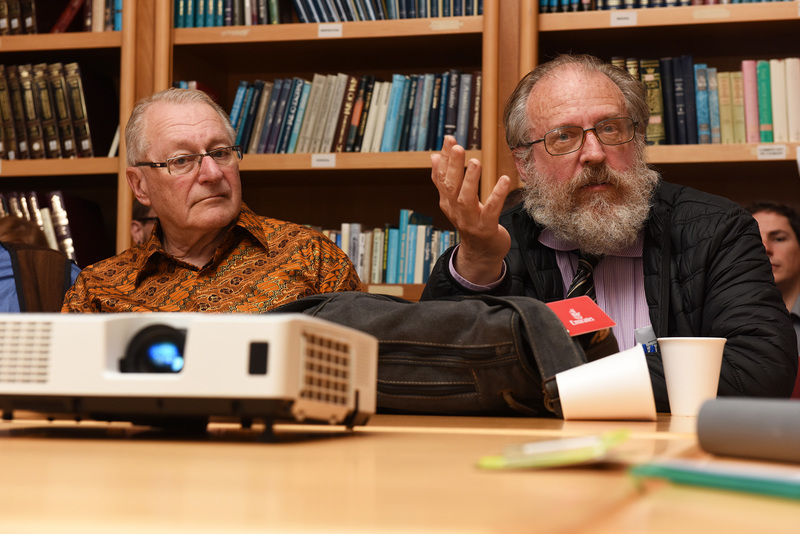
Dr Kenneth Hughes, now retired from the University of Cape Town’s (UCT) Department of Mathematics and Applied Mathematics, was a student activist during the 1960s and a member of the Students’ Representative Council (SRC) from 1967 to 1968. Dr Hughes was a student or staff member during the terms of seven UCT vice-chancellors. He recalled moments when Dr Saunders demonstrated his adroitness in “tightrope” situations – and his humour. Saunders passed away on 12 February 2021, after a short illness.
I was a member of the SRC during the handover of the vice-chancellorship from Dr [JP] Duminy to Sir Richard Luyt, and later on the lecturing staff during Dr Saunders’ tenure.
“He provided particularly outstanding leadership during the so-called Conor Cruise O’Brien affair.”
He provided particularly outstanding leadership during the so-called Conor Cruise O’Brien affair, a serious confrontation during which a part of the student body was misguided enough to attack the free-speech rights of the distinguished visiting Irish intellectual.
As a veteran civil rights person, I led the defence. Censorship is always wrong because it attacks the people’s right to know.
Stuart, early on, recognised this would be a defining crisis, but because he was vice-chancellor and was constrained by division among the teaching staff, he had to hold back until sufficient consensus had formed to enable him to arraign and take steps against the students who had led the violent disruption.
I and Charles Simkins led the way by proposing a motion, reaffirming UCT’s traditional policies of openness and academic freedom at the AGM [annual general meeting] of the Convocation, but it was butchered almost beyond recognition by amendments coming from the regressive left.
I well remember encountering Stuart the following day. He looked at me with a twinkle in his eye and said, “Ken, that was an impeccable motion.”
“In my view Stuart was the best of the seven vice-chancellors I encountered in my years at UCT.”
He would obviously have preferred it if we had not suffered death by a thousand cuts. But he survived, and I survived. During the crisis, I went out debating the students every day. And Stuart presided over debates among the faculty. Some of these debates were very rough.
One other memory that I have is about addressing a student gathering and innocently reading out to the audience a pamphlet that had been handed to me as I made my way up to the podium – only to find halfway through that it called for the lynching of “the fascist Hughes”. The audience was stunned into silence for a moment, then spontaneously erupted into shouts of denunciation of the pamphleteer.
The pamphlet turned out to have been written by a German student visiting on an exchange programme, who Stuart eventually identified and called in to haul over the carpet.
Gradually, after many weeks, liberalism and rationality prevailed, and the tide was turned.
In my view Stuart was the best of the seven vice-chancellors I encountered in my years at UCT, except possibly for Sir Richard Luyt (who had the advantage of being an outsider).
 This work is licensed under a Creative Commons Attribution-NoDerivatives 4.0 International License.
This work is licensed under a Creative Commons Attribution-NoDerivatives 4.0 International License.
Please view the republishing articles page for more information.
Dr Stuart Saunders
1931–2021
The University of Cape Town (UCT) hosted an online memorial service for former Vice-Chancellor Dr Stuart Saunders on 24 February. Dr Saunders was a dedicated servant, steward and supporter of UCT. He passed away on Friday morning, 12 February 2021.
Stuart John Saunders was born in Cape Town, South Africa, on 28th August 1931. After graduating MBChB with honours in 1953 at the University of Cape Town, he did post-graduate research at the Royal Postgraduate Medical School at Hammersmith in London and at Harvard University. He received the degree of Doctor of Medicine in 1965 (University of Cape Town). He began his administrative career as the University of Cape Town’s Head of the Department of Medicine (1971-1980) and was co-founder of the university’s Liver Clinic & Liver Research Unit (a field in which he wrote some two hundred articles and co-authored a study that has become a classical reference). He was Vice-Chancellor from January 1981 to August 1996.
You are welcome to send your tributes, or share your memories – and these will be shared on this page.
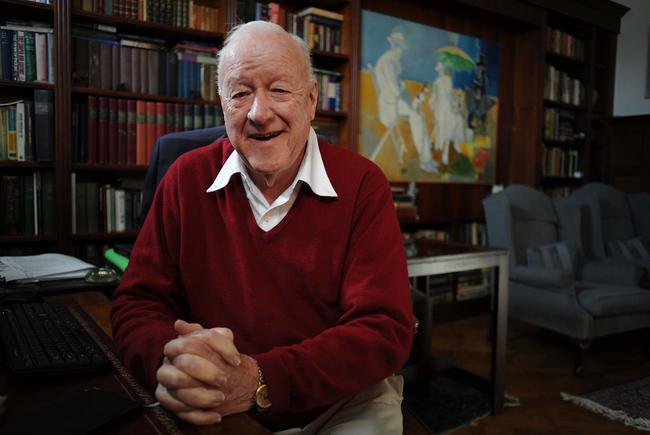
Specialist physician and former UCT vice-chancellor Dr Stuart Saunders has passed away. Saunders will be remembered for his servanthood, stewardship and support of the university over decades.
15 Feb 2021 - >10 min readTributes
Announcements
Media releases
Related articles
